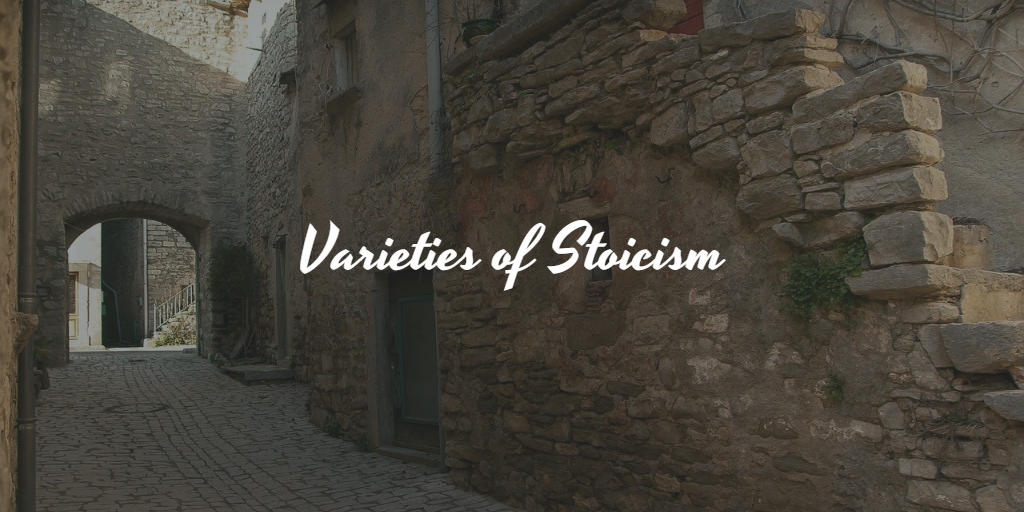I have a bunch of colleagues who do serious work on stoicism, and, well, I don’t. (1) But I’m teaching moral psychology again this semester and there’s a lot of relevant insights from various debates that I think are stoicism adjacent. (2) So here’s a kind of typology:
There’s stuff-upper-lip stoicism (which I associate with Rudyard Kipling and pasty British imperialism) that engages in emotional compression in the name of power-wielding, declaims the passions as unmanly, and has this dangerous tendency to explode when challenged. It’s actually deeply sentimental in its denial of emotion—it puts emotions to work ordering the world towards a hierarchical goal, that requires the passionate pretend to dispassion. Kipling’s poem “If” captures it perfectly, (“If you can fill the unforgiving minute/With sixty seconds’ worth of distance run,/Yours is the Earth and everything that’s in it,/And—which is more—you’ll be a Man, my son!”) but so does Henley’s Invictus. (“I am the master of my fate/I am the captain of my soul.”) And to be clear I like both poems!
There’s the stoicism of the weak: don’t get angry or resentful even at outrageous injustice because these reactions are seen as challenges to powerful and punished. Nietzsche hated this kind of stoicism: it makes all kinds of external circumstances over into an unchangeable order of Nature, flattening mortality, morality, and mores into a single situation we must merely find a way to stomach. Of course this can be pragmatic but it denies so many possibilities in the name of survival. Ironically, a lot of Admiral Stockdale’s “Courage Under Fire” probably should be classified here, in large part because he embraces Epictetus over Marcus Aurelius, and because his main practice is in his incarceration rather than in his warfighting.
Finally there’s the mindfulness stoicism of modern western buddhists (lowercase because they tend to be anti-metaphysical) and Silicon Valley self-help gurus and “techbros.” This has a developed a few different strands, but the key as far as I can tell is that there is a mix of practices: meditate to be 10% happier, update your priors dispassionately, take bets when offered, and entertain provocative ideas without blinking.
That said, I think a crucial precursor to all these ideas is David Allen’s Getting Things Done. Allen was a heroin addict and he transformed his drug recovery and New Age mysticism into a project management method for translating projects into discrete tasks, and allowing the careful management of those tasks to free oneself of anxiety. It’s all about preventing perseveration and allowing easy flow states—but it also suits automation and software replacement really well. That’s why Tim Ferris claims stoicism is “an ideal ‘operating system’ for thriving in high-stress environments.”
I sometimes talk about the way that doing logic sets—or programming for that matter—can feel like turning off your brain. That’s obviously not true: it’s “cognitively loaded” work, and confusing if you don’t know where to start. But it’s also mechanical and somewhat pleasant for its ability to give you direct feedback. The word “flow” seems to apply here: GTD is all about how to reduce big projects into discrete tasks small enough to develop that meditative flow while completing. And meditation holds out the same promise: to relate to your life with a little less attachment, to do your work with less friction, and yet still be very productive. The “Bayesian” rationalists sometimes promise a similar experience of mechanically updating ones’ priors as new information comes in—but I’ll note that one of the first metacognitive strategies of the Less Wrong rationalists is the Stoic move of separating the world into facts and beliefs, external realities and internal states. Once that is done there’s no reason to stress about it any longer: the goal is to make one’s internal states (of belief) match up with the external realities, and to bracket the various anxieties and hopes that often lead us into false beliefs.
What worries me about Silicon Valley’s mindfulness stoicism is the sense that it combines all the worst elements of world mastery and manliness with the stoicism of the weak: acceptance of injustice, the embrace of a hostile natural (and social!) world to which we must conform, and a quietism that locates our agency in that compliance while praising it as mastery. Ironically, some of the Bayesian rationalists are not at all quietistic. They create new things and institutions, organize communities, and protect their interests. There are social norms and trendsetters. But I think it’s pretty obvious that these activities fall outside of their principles, and that to a certain extent they are setting aside their stoicism when they do it. (That’s particularly obvious when they take non-rationalists to task for putative betrayals.)
There’s a lot more to be said about the intersections of buddhism and stoicism (and indeed about the intersection of Buddhism and Stoicism) but I have been pondering the role of the subject. The detachment of the stoic is hyper-individualistic in some ways: it counsels the precarity and fragility of others and the external world, but in the name of self-discipline, personal honor, and a duty to integrity. The detachment of the buddhists (and Buddhists) can’t be so easily incorporated here: embracing no-self and emptiness can be a lot more challenging and disruptive. So while Silicon Valley has adopted meditative practice without a care for the metaphysics that might be smuggled in, it may also be that these practices carry their own phenomenological lessons and insights. Perhaps the techbros are going to learn some things in spite of themselves.
- (1) Particularly pleased by Fẹ́mi O. Táíwò’s essay: “Stoicism (as Emotional Compression) is Emotional Labor.” (This link is a download link.)
- (2) I’ve run roughshod over a bunch of important differences here, and I’m not sorry for that.

Leave a Reply